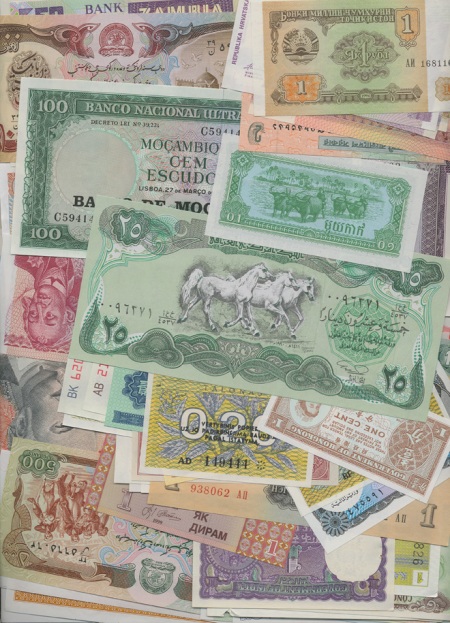World Bank and the IMF
“The poor complain, they always do,
but that’s just idle chatter.
Our system brings rewards to all,
at least to all who matter.“
~Gerald Helleiner, Canadian developmental economist.
There are clear connections between monetary and trade policies, and the poverty that sets the stage for human trafficking. The World Bank and International Monetary Fund (IMF) are two of the most powerful players in the world, who, by providing aid and loans to poor countries, can dictate a country’s economic policies. The policies of the World Bank and the IMF exacerbate the problem of poverty by imposing huge debts on developing nations and forcing governments to cut back such vital social services as education and medical care in order to pay back the debt. The IMF and World Bank also require countries to roll back labor laws, open up to foreign investors and trade and privatize essential services, including pensions. These policy reforms result in an increase in poverty, child labor, and worker exploitation.
Haiti has, for too long, been the poorest nation in the Western Hemisphere. Yet just 15 years ago they exported rice. Then, in 1995, under pressure from the IMF and the United States, Haiti was forced to cut tariffs on rice imports from 35 to just 3 percent. Haitian farmers were completely unable to compete with heavily subsidized foreign rice. The U.S. Department of Agriculture doled out 177 billion dollars in farm subsidies to U.S. agribusiness between 1995 and 2006. Three quarters of that amount went to just 10 percent of the recipient corporations. The biggest winner was Riceland Foods in Arkansas, the world’s largest rice miller and marketer. As imports to Haiti grew by 150 percent, many farmers had to abandon their farms and join the teeming underclass in Haiti’s slums. Haiti no longer exports rice and food shortages are ever-present. The most desperate are reduced to offering their children dried cakes of mud to fill their empty bellies. Today, three quarters of Haiti’s rice comes from the United States while more than a half million Haitians are trafficked to slave in the sugar fields of neighboring Dominican Republic, domestic slavery is institutionalized in the restavec system, and a 9-year-old Haitian girl can be bought as a sex slave for $50.
In today’s global economy, the rich are getting richer and the poor are getting poorer. The assets of the world’s three richest people exceed the total incomes of the 600 million people living in the world’s poorest 48 countries. In the unfettered free market of so-called free trade, corporations race to see which one can find the cheapest labor and the fewest environmental and workers’ rights regulations. A key factor in world poverty is the inability of workers in many countries to form unions and to have a voice in the determination of their wages and working conditions. As a result, millions of the world’s workers labor long hours for wages that are insufficient to meet their basic needs. Thus are the seeds sown for abuse and exploitation at the hands of those who would profit from human trafficking.
Free Trade – POOF goes the Money & the Stimulus:
World Bank / IMF Fact Sheet
SEE ALSO: “Free Trade“
Related News:
Haiti Rice Value Chain Assessment: Rapid diagnosis and implications for program design (Report Oxfam, Sept. 2012)
Total rice production has not grown significantly over the past 35 years, despite significant financial and technical assistance provided in some geographical areas. The market share of nationally produced rice has shrunk dramatically in the face of competition from inexpensive, subsidized commercial and food aid rice imports from the United States, which have become dominant in national diets, increasing the risk of long-term food insecurity in an era of global food price volatility.
To join us in action and discussion, please visit
Meetup.com/Fight-Slavery-Now

March 14, 2014 at 10:33 pm
[…] theglobeandmail, I/W, fightslaverynow, […]
April 29, 2021 at 2:51 pm
[…] non-representative international bodies run by and for the interests of the global elite at the expense of the working classes in every country on […]